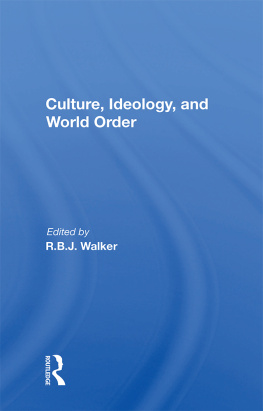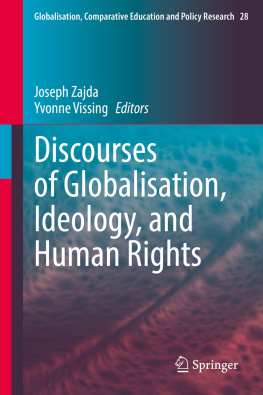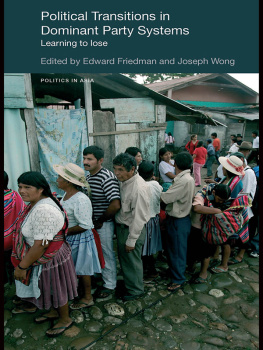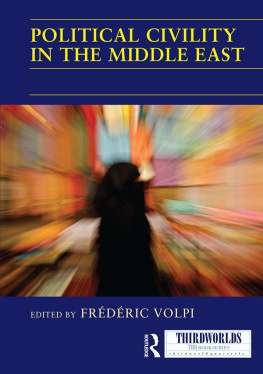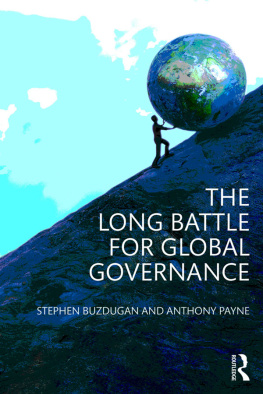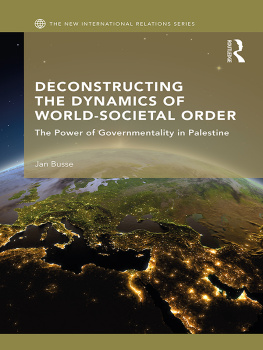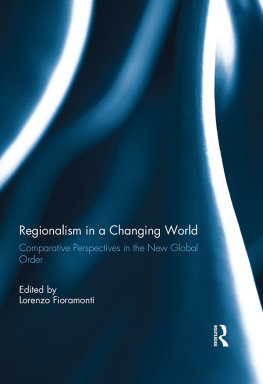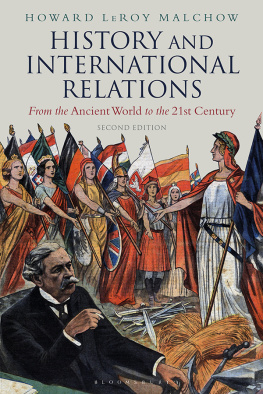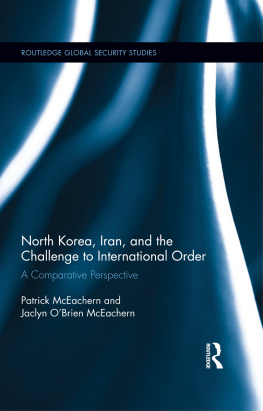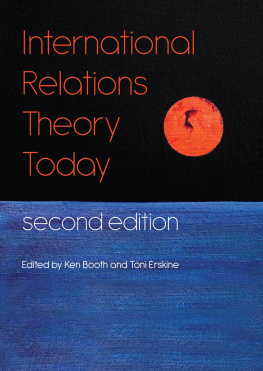Culture, Ideology, and World Order
Culture, Ideology, and World Order
Studies on a Just World Order
* Toward a Just World Order, edited by Richard Falk, Samuel S. Kim, and Saul H. Mendlovitz
* Toward Nuclear Disarmament and Global Security: A Search for Alternatives , edited by Burns H. Weston, with the assistance of Thomas A. Hawbaker and Christopher R. Rossi
* International Lew and a Just World Order , edited by Richard Falk, Friedrich V. Kratochwil, and Saul H. Mendlovitz
* The United Nations and a Just World Order , edited by Richard Falk, Samuel S. Kim, Donald McNemar, and Saul H. Mendlovitz
* Culture, Ideology, and World Order, edited by R.B.J. Walker
*Available in hardcover and paperback.
About the Book and Editor
Culture, Ideology, and World Order
edited by R.B.J. Walker
Contemporary discourse about human affairs is largely grounded in the specific historical experience and interests of a few dominant societies. This poses an important challenge to all those who urge that we need to adopt a global perspective on modern political life, whether in terms of international relations, comparative and developmental politics, international political economy, world order studies, or general social and political theory. In terms of "culture," we must then face the problem of ethnocentrism; in terms of "ideology," we must contend with the complex problems of the relationship between discourse and the broader patterns of social, economic, and political power and evaluate the way in which appeals to alternative cultural traditions inform strategies of resistance to the prevailing international order.
This volume of essays underlines the centrality of these themes in modern international affairs, presenting an important context in which to understand recent debates in international political theory in general and speculations about the character of a just world order in particular.
R.B.J. Walker is assistant professor of political science at the University of Victoria. He was Visiting Fellow at the Center of International Studies, Princeton University, from 1977 to 1979 and at Australian National University in 1978. Dr. Walker is author of Political Theory and the Transformation of World Polities (1980).
Studies on a Just World Order, No. 5
Culture, Ideology, and World Order
edited by R.B.J. Walker
First published 1984 by Westview Press, Inc.
Published 2018 by Routledge
52 Vanderbilt Avenue, New York, NY 10017
2 Park Square, Milton Park, Abingdon, Oxon OX14 4RN
Routledge is an imprint of the Taylor & Francis Group, an informa business
Copyright 1984 Taylor & Francis
All rights reserved. No part of this book may be reprinted or reproduced or utilised in any form or by any electronic, mechanical, or other means, now known or hereafter invented, including photocopying and recording, or in any information storage or retrieval system, without permission in writing from the publishers.
Notice:
Product or corporate names may be trademarks or registered trademarks, and are used only for identification and explanation without intent to infringe.
Library of Congress Catalog Card Number: 84-50599
ISBN 13: 978-0-367-01501-5 (hbk)
For Susan, Johanna and Caitlin
Contents
, R.B.J. Walker
, Ali A. Mazrui
, R. J. Vincent
, Immanuel Wallerstein
, Joseph Camillerl
, Celso Furtado
, Anouar Abdel-Malek
, Ashls Nandy
, R.B.J. Walker
, R. N. Berki
, Mark Blasius
, Robert W. Cox
, R.B.J. Walker
, Rajni Kothari
Contemporary analyses of human affairs are largely grounded in the specific historical experience and interests of a few dominant societies. This poses an important challenge to all those who sense a need for a more cosmopolitan or global perspective on modern political life. This challenge may be posed in terms of "culture" and therefore of ethnocentrism and nationalism, or in terms of "ideology" and thus of the complex relationship between particular discourses and other forms of social, economic, and political power. In either case, it demands a sensitivity to the way in which appeals to alternative cultural and theoretical traditions can inform strategies of resistance to the prevailing international order.
This collection of essays is intended to encourage a greater concern with this set of problems. It has grown out of my own attempt to come to terms with the theoretical and philosophical traditions that have informed contemporary analyses of international politics within the West. The adequacy of such analyses has been questioned frequently and from many points of view. Yet it has seemed to me that neither the fairly obvious dangers of parochialism in theorizing about global events nor the ideological implications of our inherited traditions of thought in this area have received anything like adequate attention.
In putting this collection together, I have been all too aware of the theoretical difficulties that accompany the concepts of both culture and ideology as well as of the wide range of substantive matters that could be addressed. Consequently, I have been less concerned to develop a consistent theoretical perspective than to draw attention to the often sharply contrasting ways in which cultural and ideological themes have been treated in the literature on international politics. My aim has been to provoke questions and critical discussion rather than to offer definitive analyses of particular issues. However, the essays are structured around what seems to me to be one inescapable theme--the tension between universalist and pluralist conceptions of human affairs. The way in which the universal validity of the discourses of dominant groups is both claimed and challenged has long been central to critical social and political thought. It is particularly significant for the analysis of international politics which is so often torn between the priority of global structures and necessities on the one hand and the particular interests of states on the other.
This volume has developed out of an ongoing research project on international political theory begun while I was a Visiting Fellow at the Center of International Studies, Princeton University. Additional stimulation has come from participation in the World Order Models Project Working Group on Culture, Power and Global Transformation as well as from faculty and students at the University of Victoria. Research has been supported by what is now the World Policy Institute in New York which awarded me a Transnational Academic Program Fellowship in 1981-82. I am indebted to a great many people for encouragement and assistance, most particularly to Richard Falk, Susan Gordon, Saul Mendlovitz and Sherle Schwenninger.
R.B.J. Walker
Part 1
Introduction
Chapter 1
East Wind, West Wind: Civilizations, Hegemonies, and World Orders
R.B.J. Walker
I
Cultural and ideological themes have been invoked with increasing regularity in the analysis of international affairs. Whether addressing Islamic radicalism, strategies of autonomous development, resurgences of nationalism, debates over human rights or international law, critiques of the monopolization of communications media by the industrialized states, attempts to demystify Western notions of economic growth and political development, or calls for a dialogue of cultures in the creation of an emerging global society, it now seems less useful than ever to view global tensions only in terms of explicitly economic and military structures.

